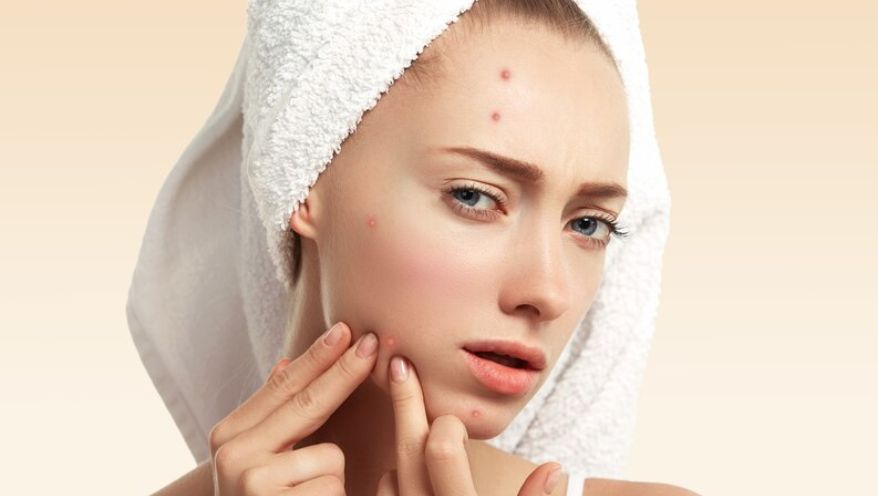Acne Scar Removal

Acne is a common skin condition that can affect people of all ages. While the physical and emotional challenges of dealing with active acne are well-known, the aftermath of this skin condition can also be distressing. Acne scars, left in the wake of breakouts, can impact self-confidence and the overall appearance of the skin.
What Causes Acne Scarring?
Acne scars can occur because of the body’s natural healing process when the skin has been damaged by severe or prolonged inflammation. Acne scarring is formed when the base of the follicle or pore becomes clogged and infected with either sebum (oil), sweat, dead skin cells and or bacteria. This infection then surfaces from the dermis to the top of the skin, damaging and destroying the healthy tissue and cells surrounding it, thus causing an indentation. Here’s a closer look at the two main types of acne scars:
1.Atrophic Scars: Atrophic scars are depressions or indentations in the skin. They occur when there’s a loss of tissue during the healing process. The most common subtypes of atrophic scars are:
- Icepick Scars: Deep, narrow, V-shaped scars that look like they were made by an ice pick.
- Boxcar Scars: Broad, rectangular depressions with well-defined edges.
- Rolling Scars: Wavy or undulating scars that create a rolling appearance on the skin.
2.Hypertrophic or Keloid Scars: These scars are raised, thickened, and appear more prominently than the surrounding skin. They develop when there is an overproduction of collagen during the healing process.
Acne Scar Treatment Options
The good news is that there are various treatment options available to improve the appearance of acne scars. The choice of treatment depends on the type and severity of the scars, as well as individual skin characteristics. Here are some common options:
- Topical Treatments: Over-the-counter or prescription creams, gels, and serums containing ingredients like retinoid or alpha hydroxy acids (AHAs) can help improve the appearance of mild acne scars.
- Chemical Peels: Chemical peels use acids to remove the top layer of skin, encouraging the growth of new, smoother skin. They are effective for mild to moderate scarring.
- Microneedling: Microneedling creates tiny punctures in the skin, stimulating collagen production and improving the appearance of atrophic scars.
- Laser Therapy: Various types of lasers, such as fractional laser and CO2 laser, can target different aspects of scarring, promoting collagen production and skin renewal.
- Dermal Fillers: Injectable dermal fillers can temporarily raise atrophic scars to match the surrounding skin, providing immediate improvement.
Acne scar removal for clients with darker skin tones that range from 4-6 on the Fitzpatrick scale, should consult a medical professional regarding which ablative treatment is safest and most effective for their skin texture and tone.
Acne scar removal treatment series can range anywhere between 4-8 treatments spaced approximately 4-8 weeks apart (depending on how aggressive the treatment is). More aggressive treatments will have more energy, heat and depth delivered to the skin, which will require more downtime. Depending on the procedure, clients can experience anywhere between 3-5 days, or even up to 10 days of downtime with acne scar removal treatments.
Tips for Managing Acne Scars
Besides professional treatments, there are several self-care strategies that can help manage and reduce the appearance of acne scars:
- Sun Protection: Protect your skin from the sun’s harmful UV rays, as sun exposure can make scars more noticeable. Use sunscreen and wear protective clothing.
- Healthy Lifestyle: Maintain a balanced diet, stay hydrated, and avoid smoking. These factors can influence skin health and healing.
- Avoid Picking: Do your best to resist the temptation to pick or squeeze acne lesions, as this can worsen scarring.
- Consult a Dermatologist: If you have concerns about acne scars, consult with a dermatologist who can provide a professional assessment and recommend the most appropriate treatments
Patience and Persistence
Acne scar treatment requires time and patience. It’s important to set realistic expectations and understand that complete scar removal may not always be possible.
However, with the right combination of professional treatments, self-care, and a healthy lifestyle, you can significantly improve the appearance of your skin and boost your confidence. Don’t let acne scars hold you back from feeling your best; explore your treatment options and embark on your journey toward smoother, scar-free skin.
Here at Skin Secrets, our goal is to provide our clients with an in-depth knowledge and understanding of all our cosmetic procedures we offer, and to provide a completely customizable series of treatments to achieve their desired results.

